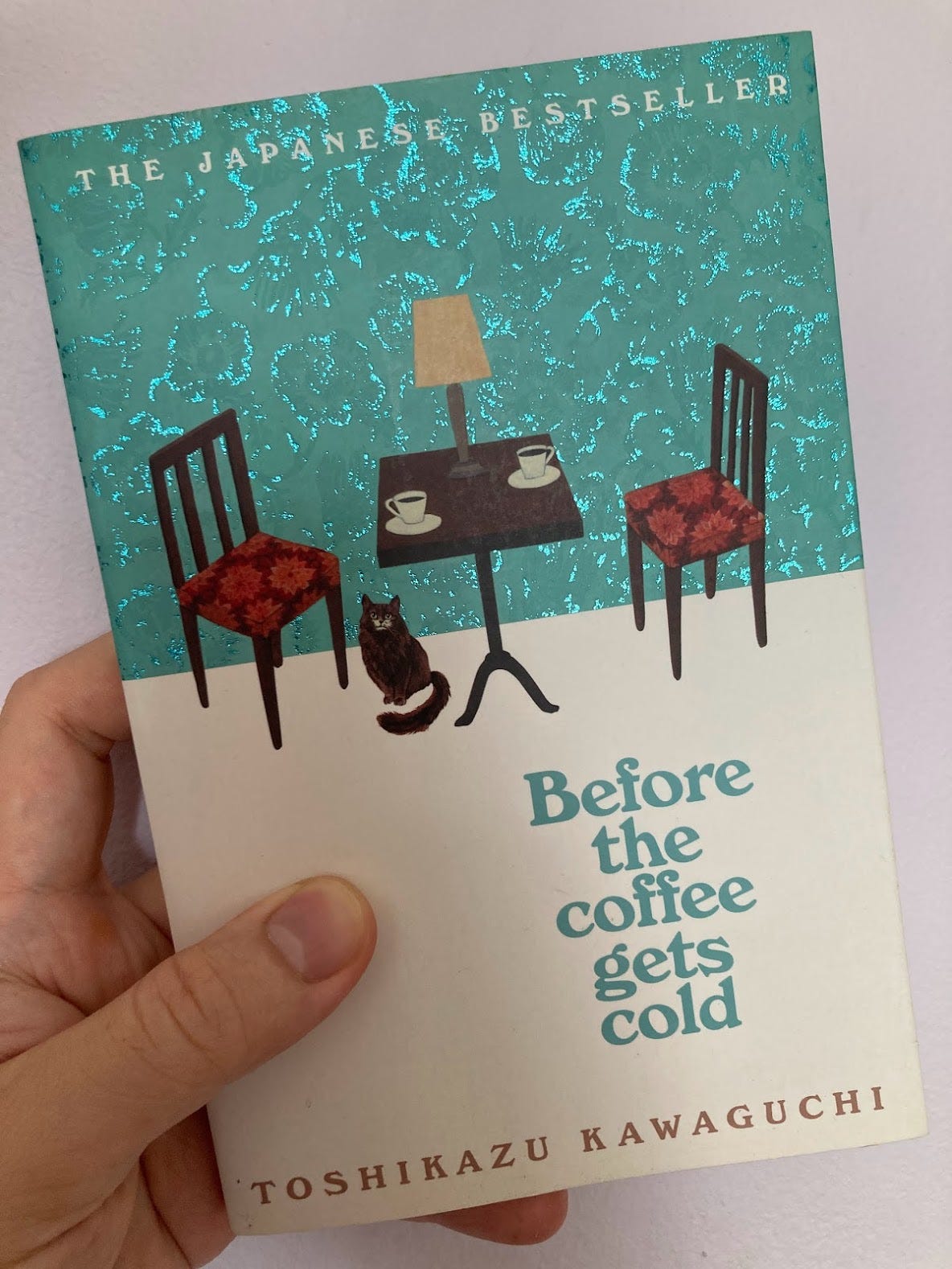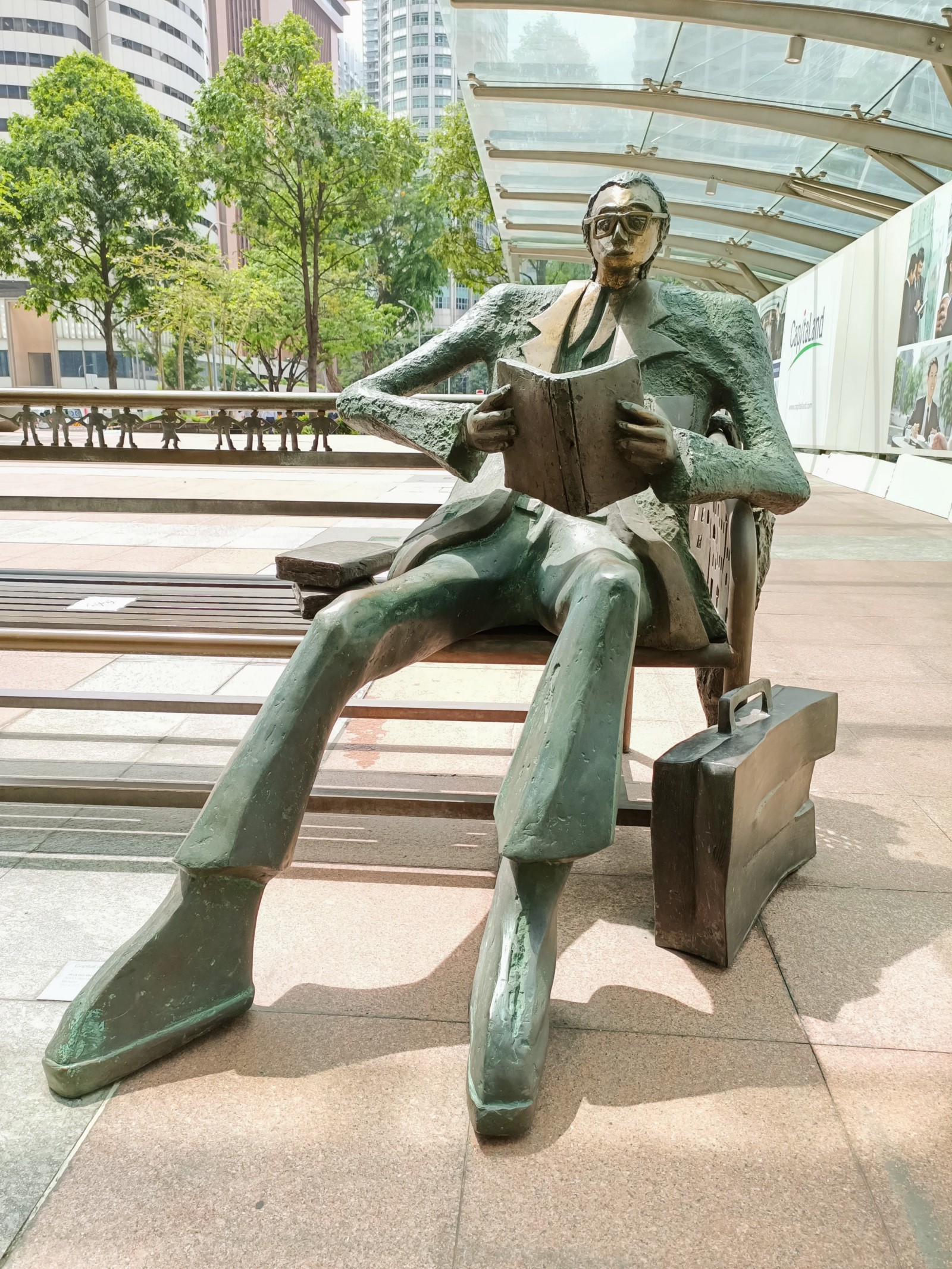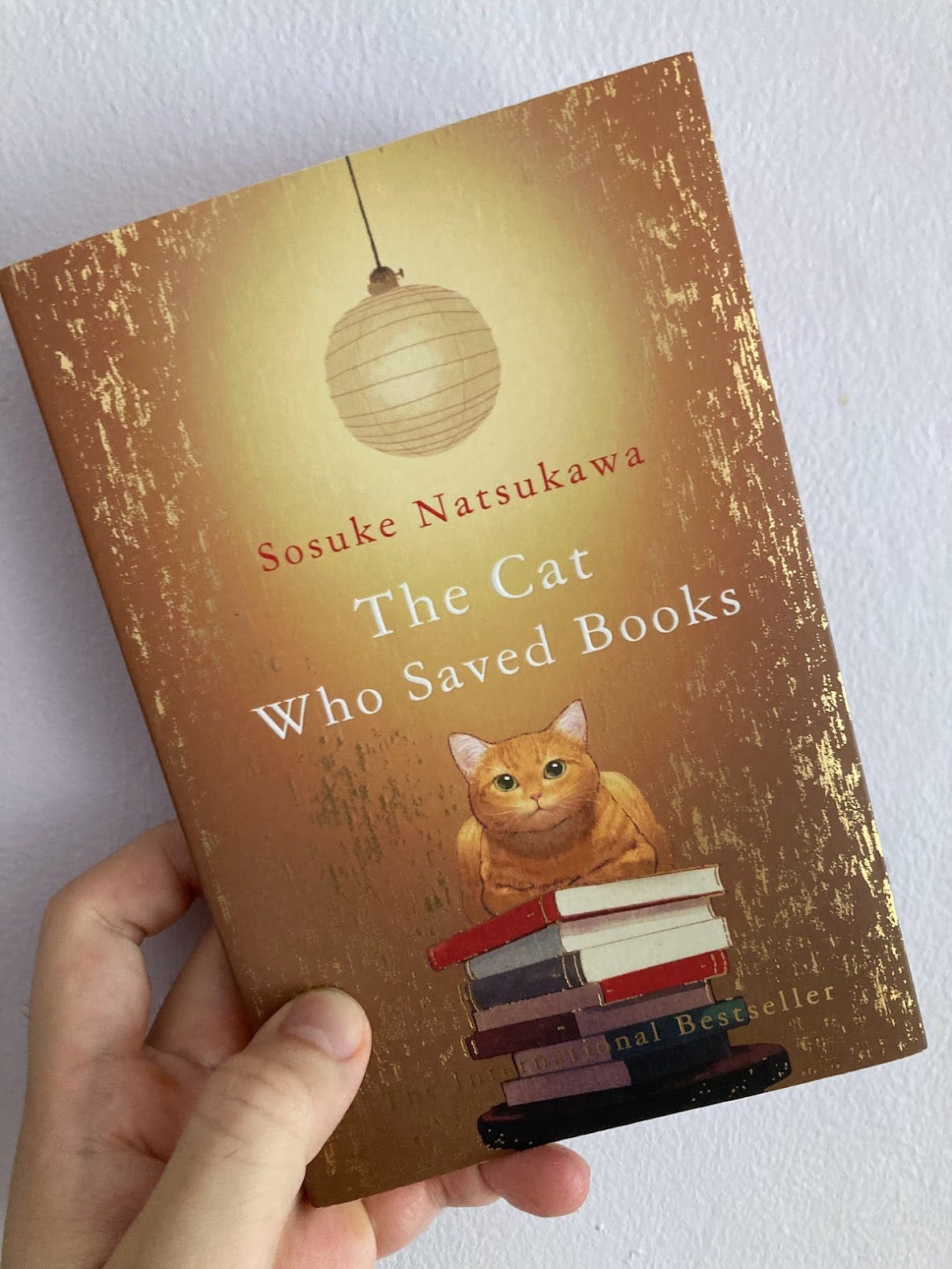
Before The Coffee Gets Cold
Toshikazu Kawaguchi | Geoffrey Trousselot (translator)
“The present doesn’t change.” — Toshikazu Kawaguchi
The word “coffee” is in the title — I require no other justifications to read the book. I was not disappointed.
The book is divided into four episodic stories happening in a basement cafe, Funiculi Funicula. A lady who wishes to understand why her lover is leaving her, a wife who wonders about the message her husband is planning to give to her, a sister who wants to talk to her dead sister one last time after avoiding her for years and the cafe owner’s sick wife who seeks to meet her unborn daughter.
The problem? They are unable to circumvent what happens in the present and they must follow a long list of rules in order to time-travel successfully and return to the present safely. And through all these, the waitress Kazu serves them coffee in that one and only seat which fulfils their wishes.
Personally, I enjoy how the four short stories unfold. Kawaguchi expanded a simple idea into a short story using simple language. Nothing fanciful, nothing earth-shattering, nothing convoluted. Just four stories of people time-travelling in a cafe without the complicated laws of physics to distract me with a world of “what ifs”.
I also particularly like the way Kawaguchi describes the setting of the cafe, as well as the colourful characters in the cafe. No character is a simple star in their own story and they continue to appear in each other’s story. The cast is assembled neatly into the cafe. For me, this narrative technique brings the stories to life. I can almost envision myself in the cafe, observing the events as they happen.
And of course, the quote perfectly summarises the book in its entirety. Despite the time-travelling element in the book, it is never about going to the past or future to change the present. It is also never about inspiring or being inspired to become a better person.
It is simply about making peace with the present.








